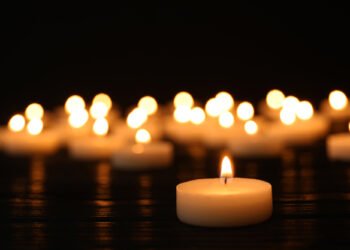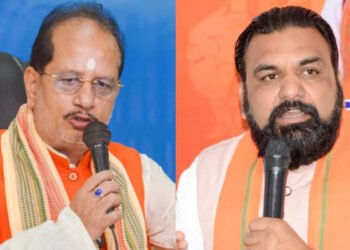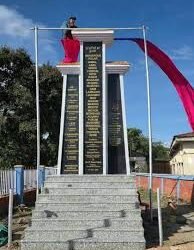A month after the Prime Minister’s visit, Manipur remains trapped in distrust, corruption, and despair — with no visible change on the ground.
By Navin Upadhyay
October 14, 2025: A month after Prime Minister Narendra Modi’s high-profile visit to Manipur, the state remains trapped in the same vortex of ethnic division, mistrust, and institutional paralysis that has defined its crisis for more than a year. Despite assurances of peace and reconstruction, the ground reality tells a different story — one of fragile calm, deepening alienation, and unaddressed grievances that continue to tear the state’s social fabric apart.
The Prime Minister’s visit had raised faint hopes that the Centre would take tangible steps to heal the divide between the Meitei and Kuki-Zo communities. Yet, nothing substantial has changed. The two communities remain segregated, physically and emotionally. Check gates, buffer zones, and abandoned villages still mark the boundaries of mistrust. People displaced from their homes continue to languish in relief camps, and the talk of “normalcy” rings hollow in a state where social contact between the two communities has all but vanished.
The fragile truce has held not because reconciliation has taken root, but because exhaustion and militarization have created a wary silence. The Meiteis dominate the valley; the Kuki-Zo remain confined to the hills. The state continues to function like two separate entities — each suspicious of the other’s motives, each nurturing its own version of victimhood and justice.
Law and Order: Peaceful, But Precarious
While the overall law and order situation has remained relatively calm, the peace is precarious. The recent ambush on an Assam Rifles convoy, which left two soldiers dead, is a chilling reminder of how quickly things can unravel. Preliminary investigation reports suggest the possibility of a contract killing aimed at undermining the credibility of the President’s Rule and portraying it as ineffective. If true, the implications are grave — for it suggests that forces within or outside the political structure may be manipulating violence to serve partisan ends.
Identifying who orchestrated the attack is essential. Without clarity, the morale of security forces will erode further, and public faith in the administration will decline. Manipur’s fragile stability cannot afford another cycle of blame and revenge.
READ: Meitei Husband Kills Kuki Wife in Delhi After Domestic Dispute
Rising Crime, Corruption, and Contempt for Governance
The continuing spate of crimes — from abductions and torture to large seizures of contraband drugs — has further darkened the state’s outlook. The situation is compounded by an alarming series of scams: allegations of siphoning off IDP (Internally Displaced Persons) funds, irregularities in Manipur University, and corruption in water-tap installation projects.
Each scandal chips away at public confidence, not only in local administration but also in the central government’s commitment to transparency. When relief meant for displaced people is misused, the message that travels to the camps is devastating — that suffering has become someone else’s opportunity for enrichment.
The Stalled Peace Process
Perhaps the most disheartening failure of the past month is the Centre’s inability to move forward on the promised political dialogue with the Kuki-Zo groups. When the government renewed the Suspension of Operations (SoO) agreement with the Kuki National Organisation (KNO) and United People’s Front (UPF), and signed a fresh understanding with the Kuki-Zo Council, it created an expectation of structured, time-bound negotiations. That expectation has since evaporated.
The Home Ministry’s silence has caused deep frustration among Kuki-Zo leaders and strengthened hardline voices who argue that peaceful negotiation is a futile exercise. Each day of delay pushes reconciliation further out of reach. It also emboldens extremist rhetoric on both sides, undermining the very framework of democratic resolution that the Centre claims to uphold.
Camps of Despair
Meanwhile, around 60,000 displaced people continue to live in makeshift relief camps under appalling conditions. As winter approaches, the humanitarian crisis will worsen. Most camps lack adequate heating, sanitation, and medical facilities. The government’s relief response remains patchy and bureaucratic.
The displaced — many of them children and women — are now facing their second winter in camps, and despair has set in. Their continued suffering exposes the gap between New Delhi’s grand announcements and the state’s lived reality. The Prime Minister may have unveiled a ₹8,000-crore reconstruction plan, but those projects are years away from materializing. People need immediate shelter, not future promises.
The Political Question Ahead
At the heart of Manipur’s crisis lies an uncomfortable truth: the ethnic divide has become political and existential. The Kuki-Zo community has repeatedly stated that it can no longer live under a Meitei-led government and insists on the creation of a Union Territory. The Centre, however, seems hesitant to even acknowledge this demand, let alone address it.
Reviving an elected government in Imphal, if done without reconciliation, will not restore normalcy. It will only deepen alienation and risk renewed unrest. Manipur’s wounds are not administrative; they are emotional, historical, and human. They demand empathy, dialogue, and courage from New Delhi — not just optics.
A Visit Remembered, But No Change Felt
A month after Narendra Modi’s visit, nothing has fundamentally changed in Manipur. The silence of the guns has not translated into peace of mind. The camps still overflow, corruption festers, and mistrust defines daily life.
Unless the Centre moves decisively to address the root of the ethnic divide — and backs its promises with action — Manipur will remain what it has become: a state frozen between fear and fatigue, where peace is only an illusion.













